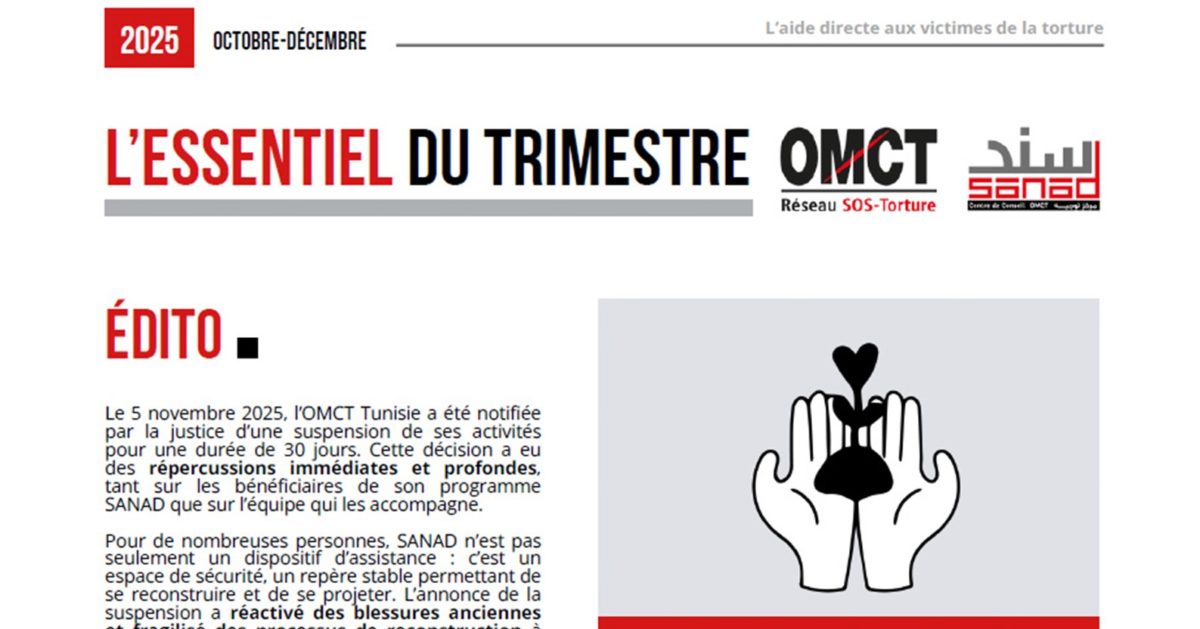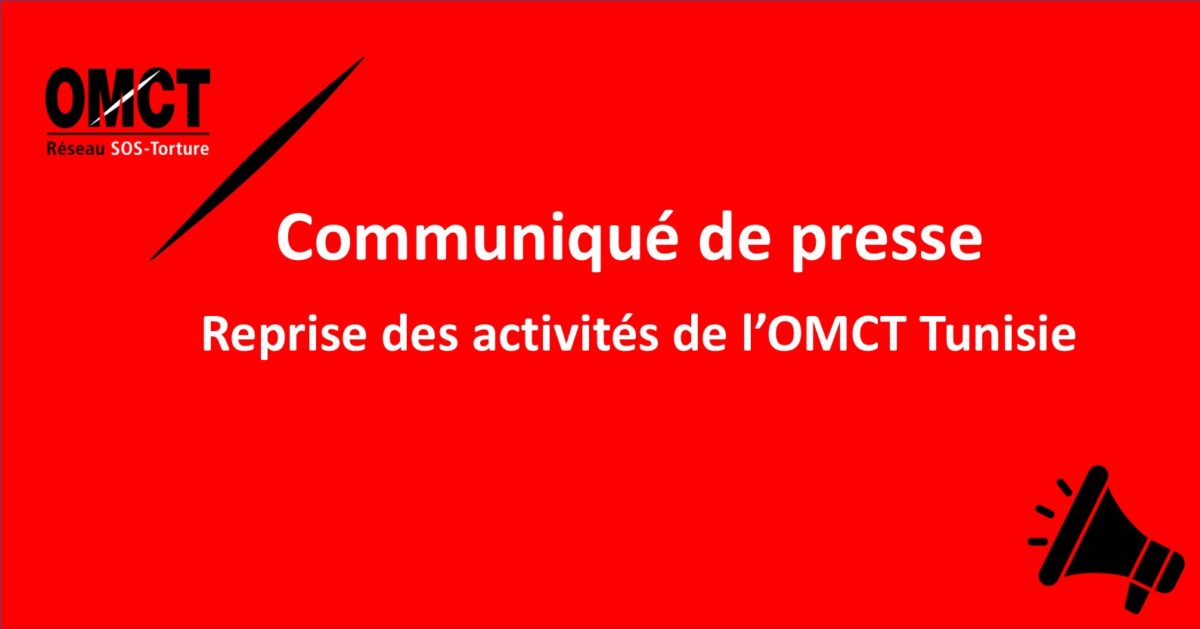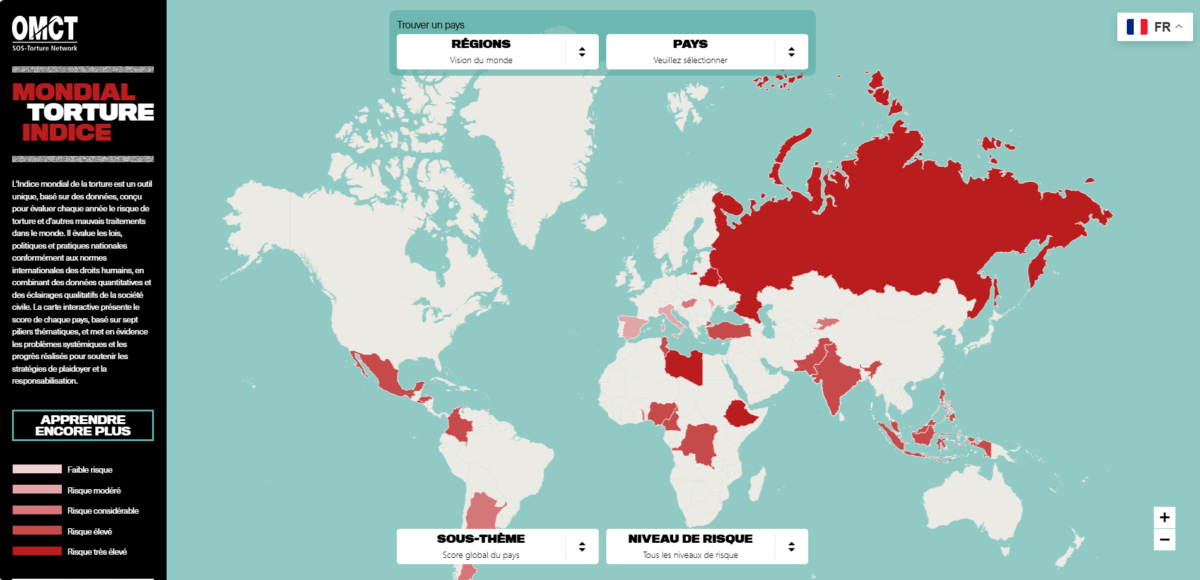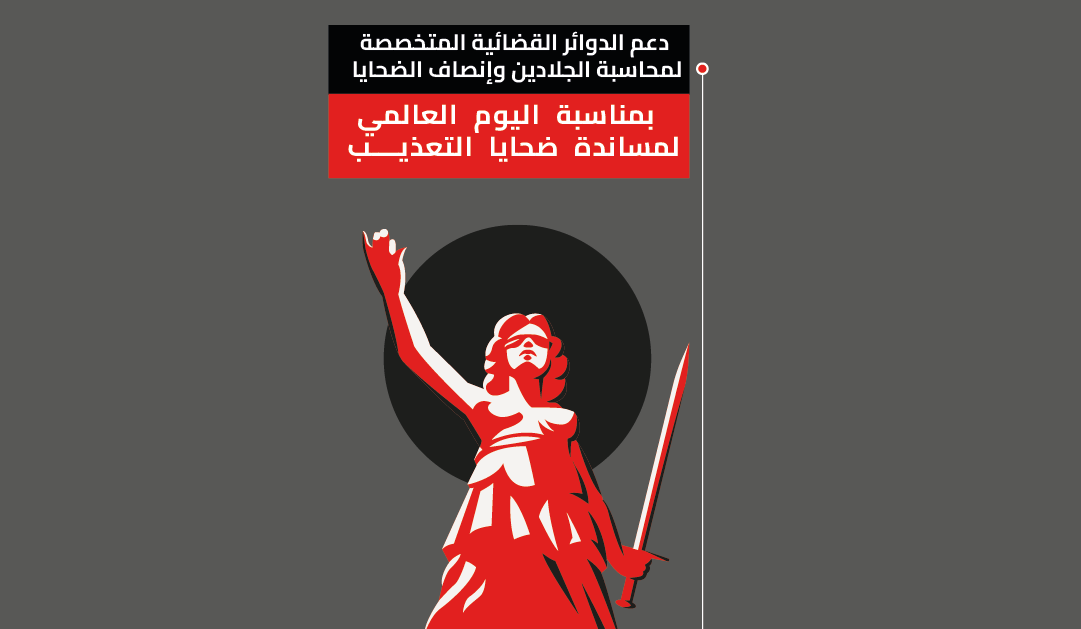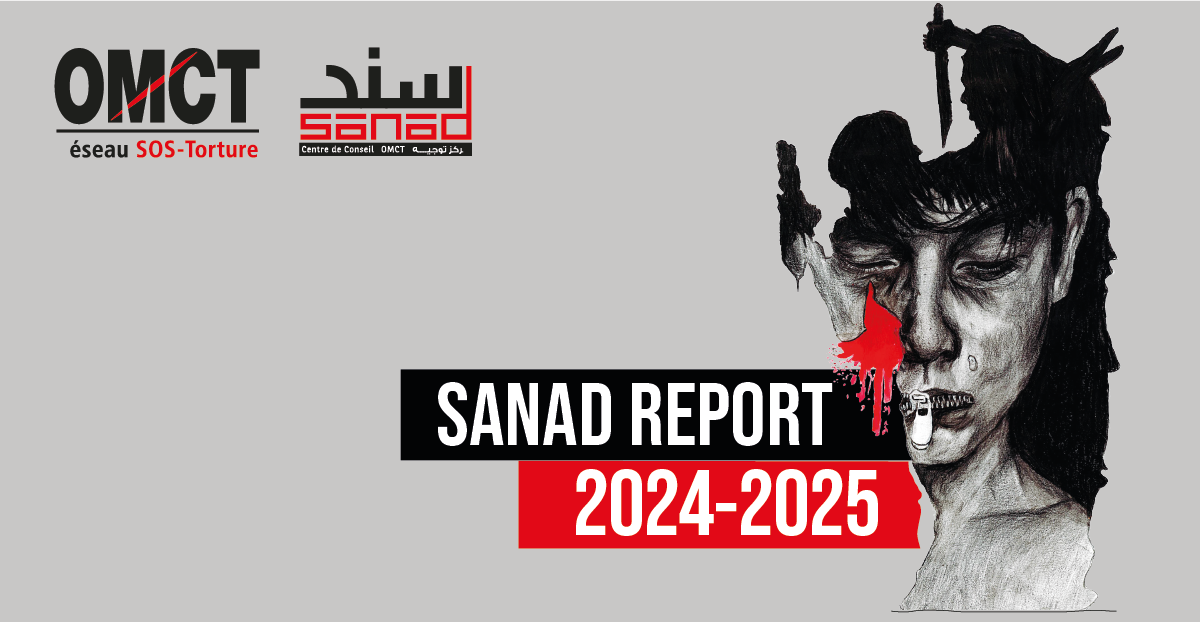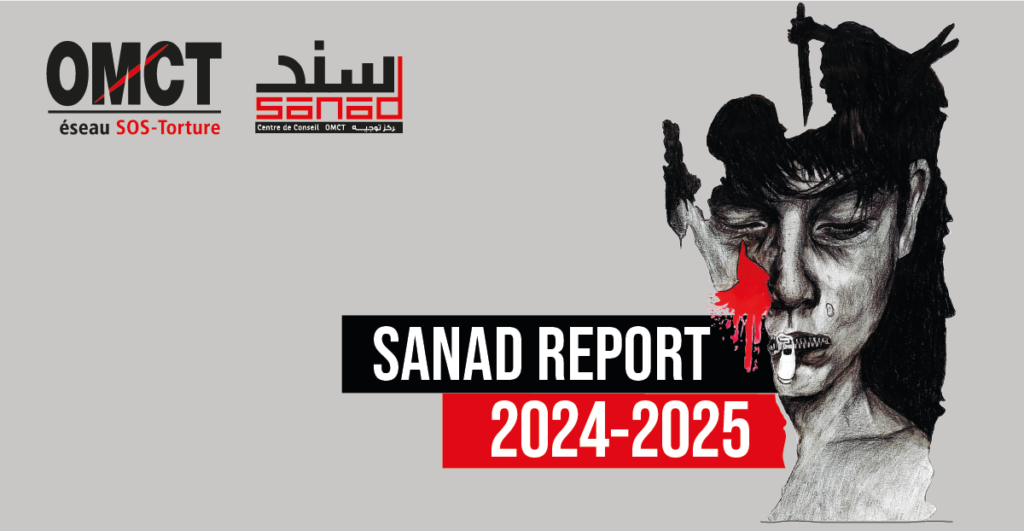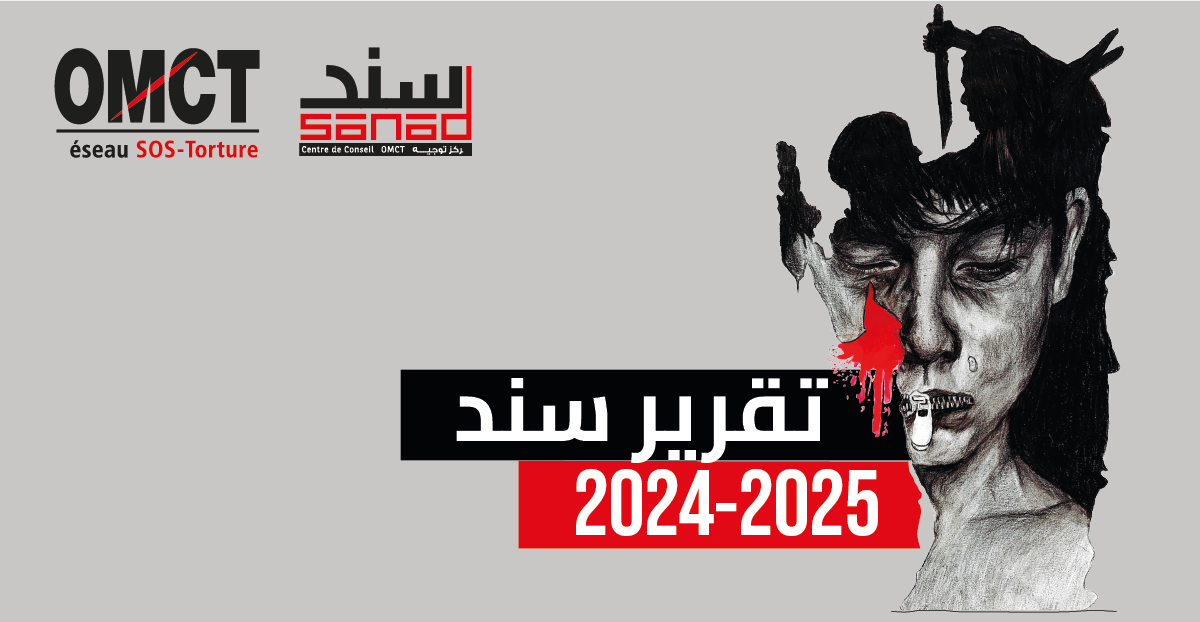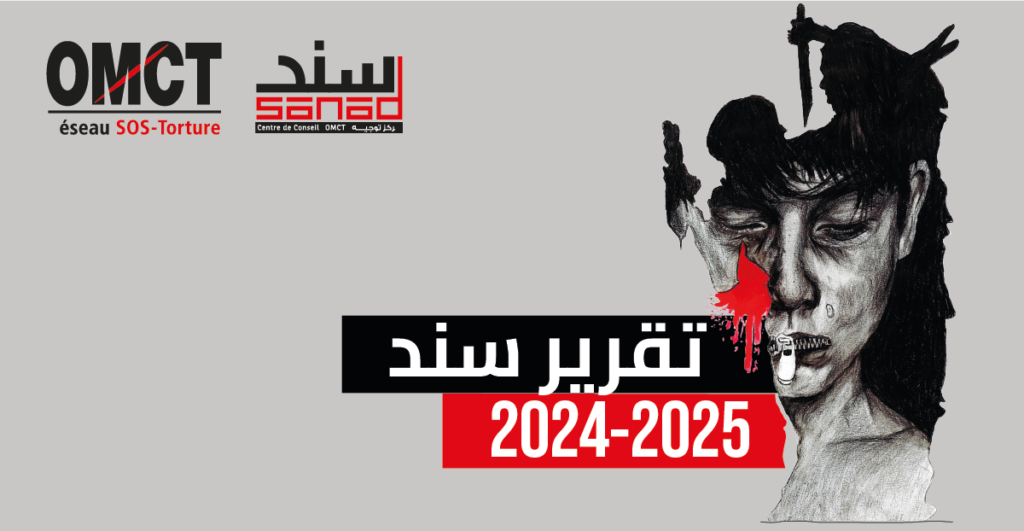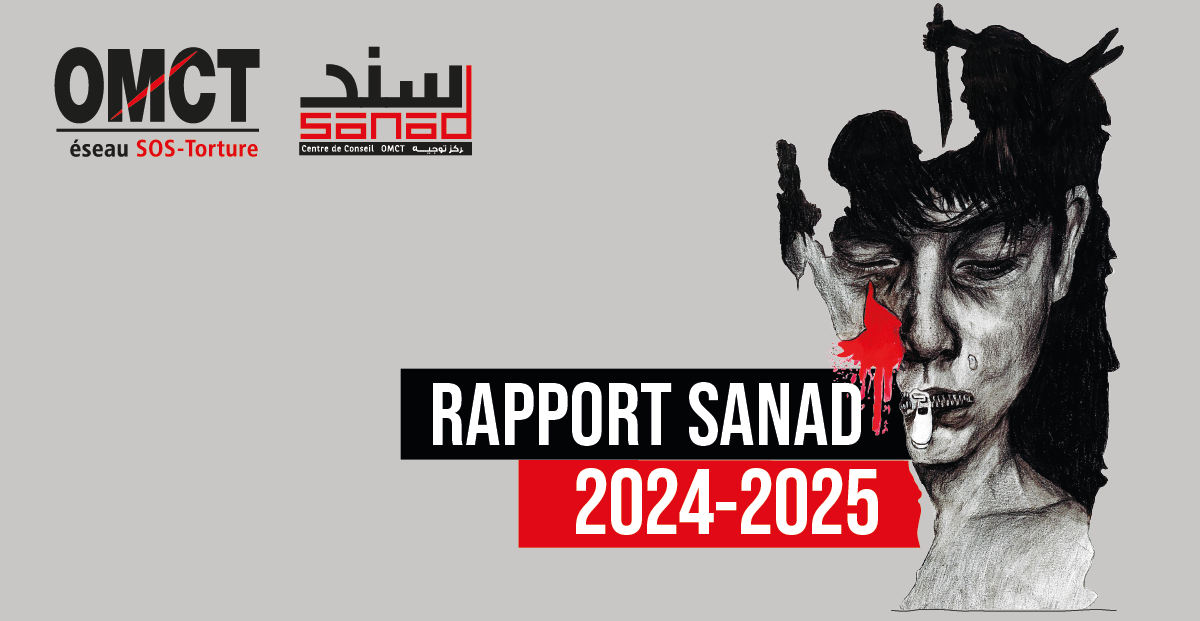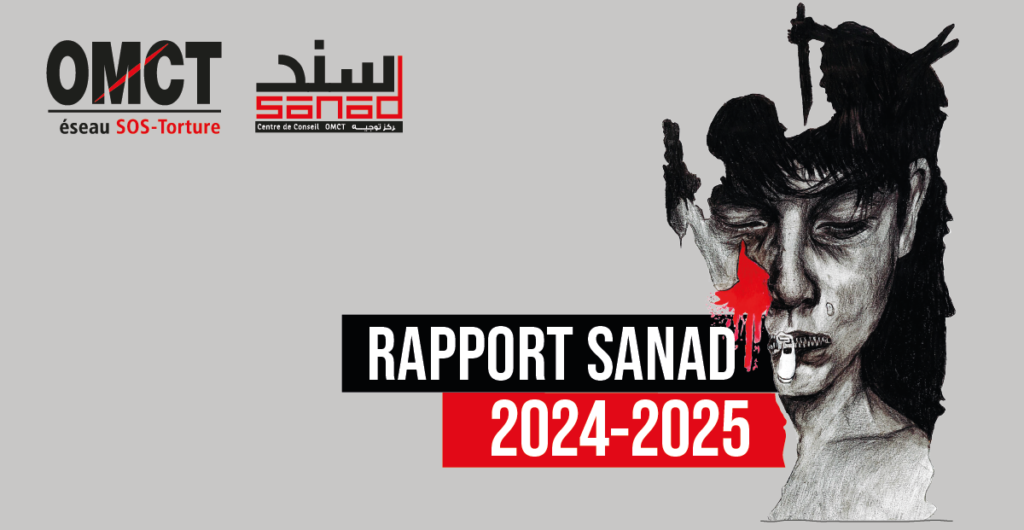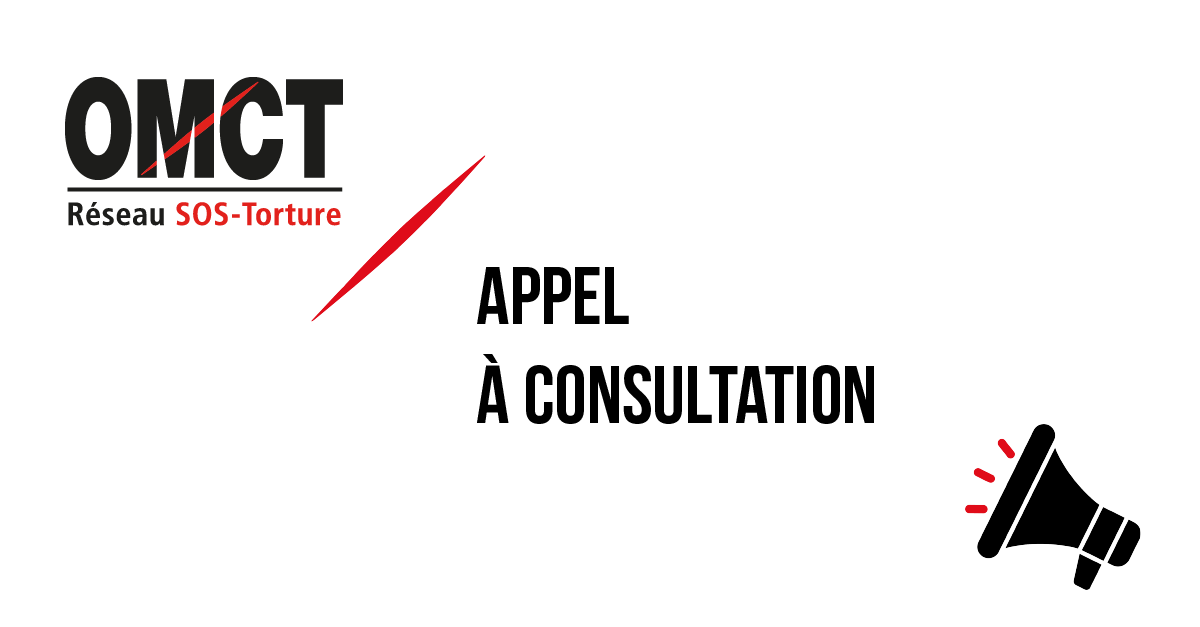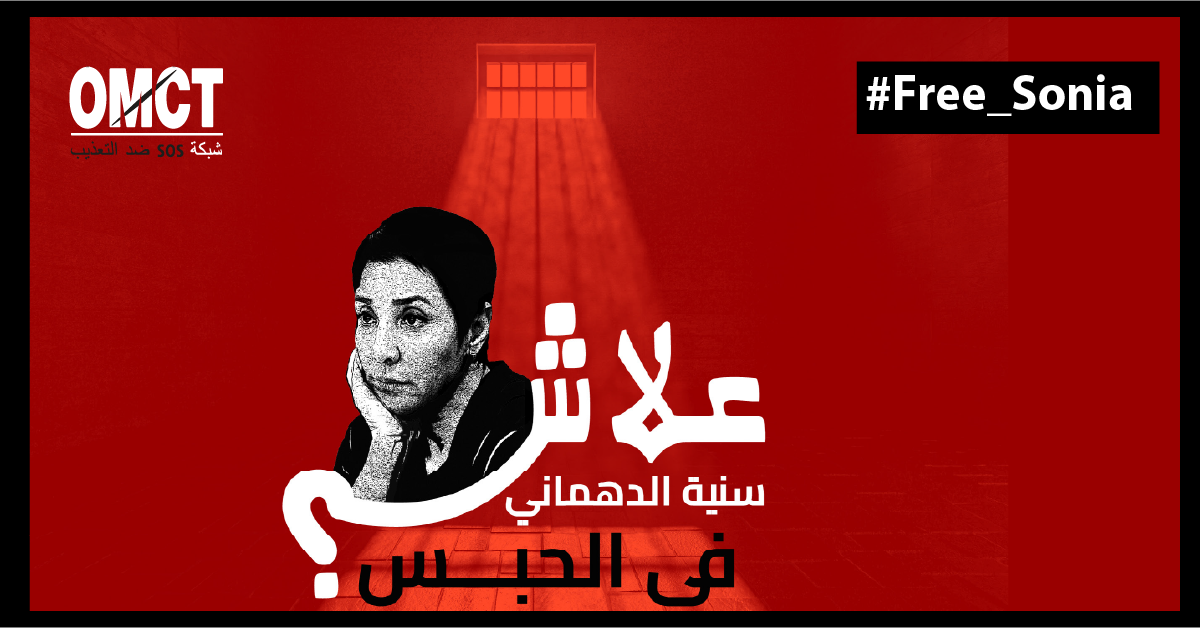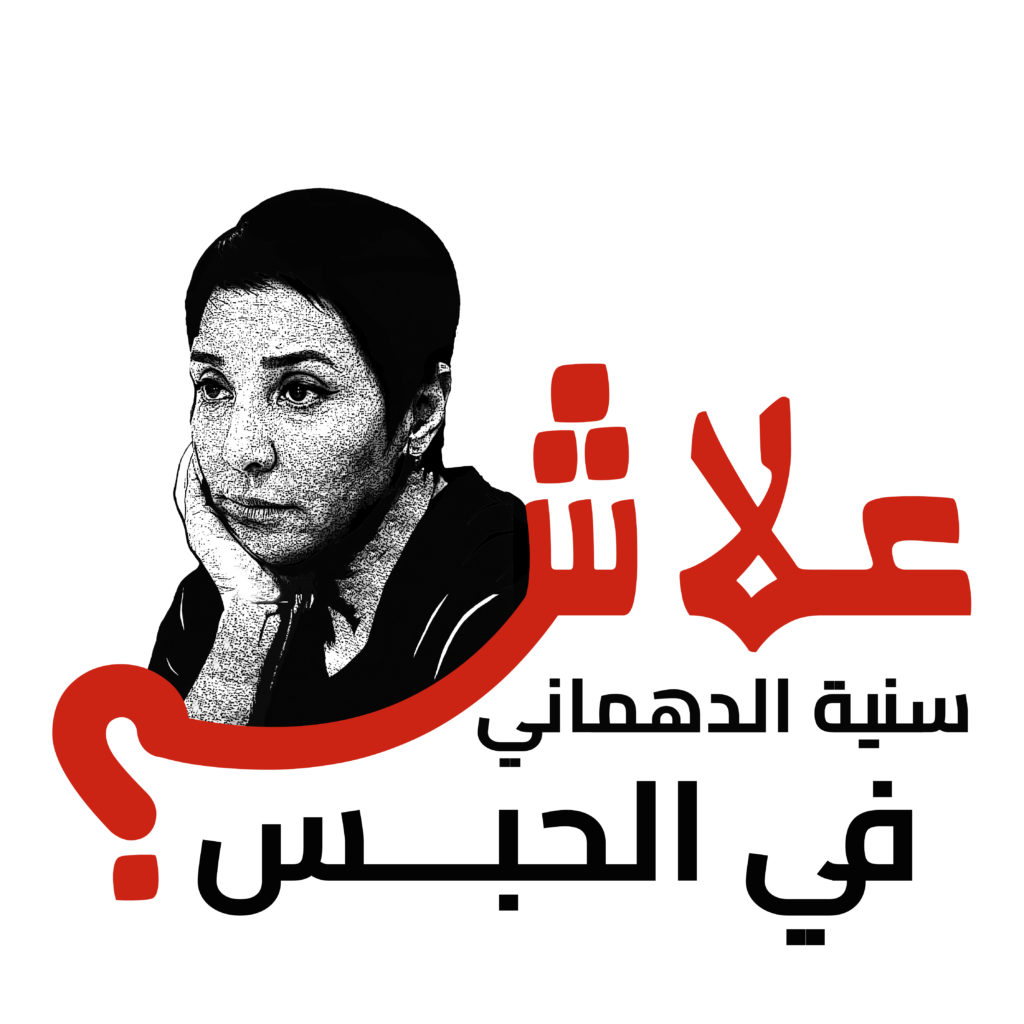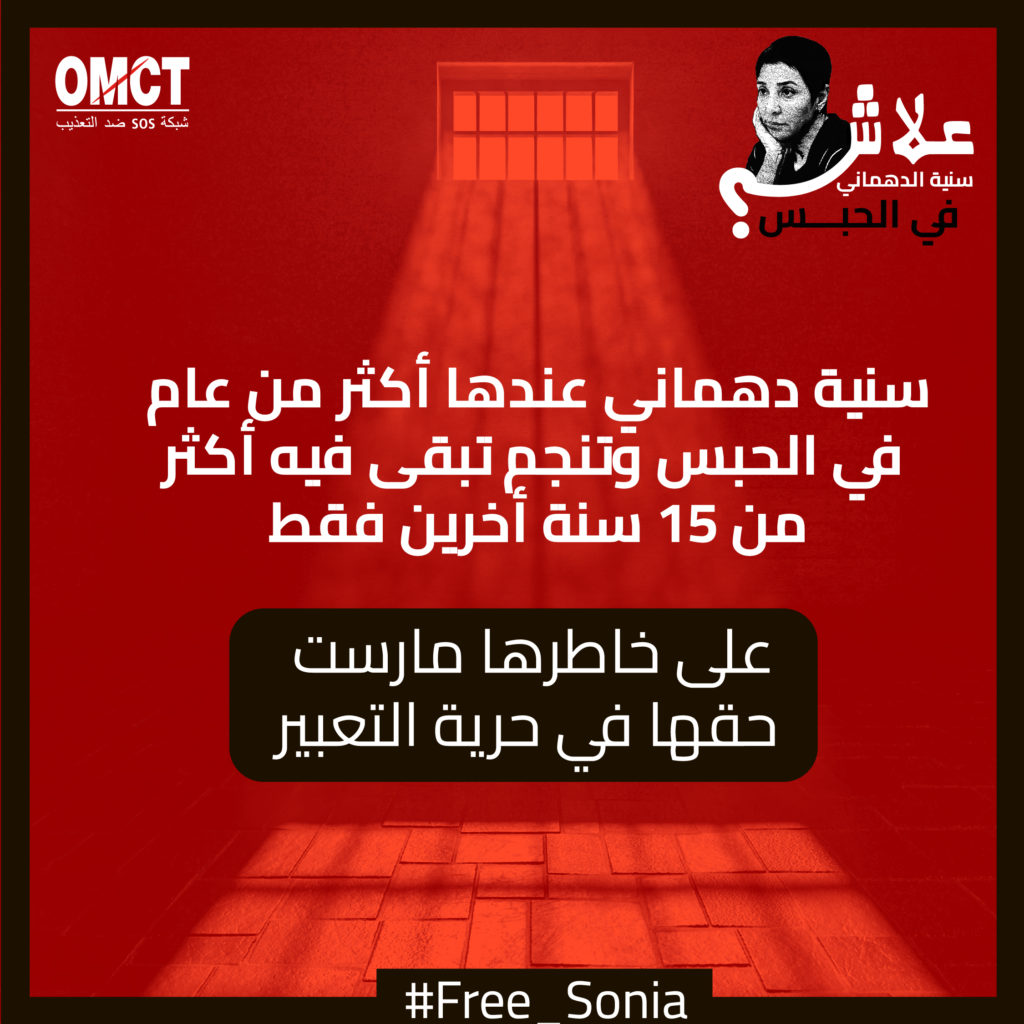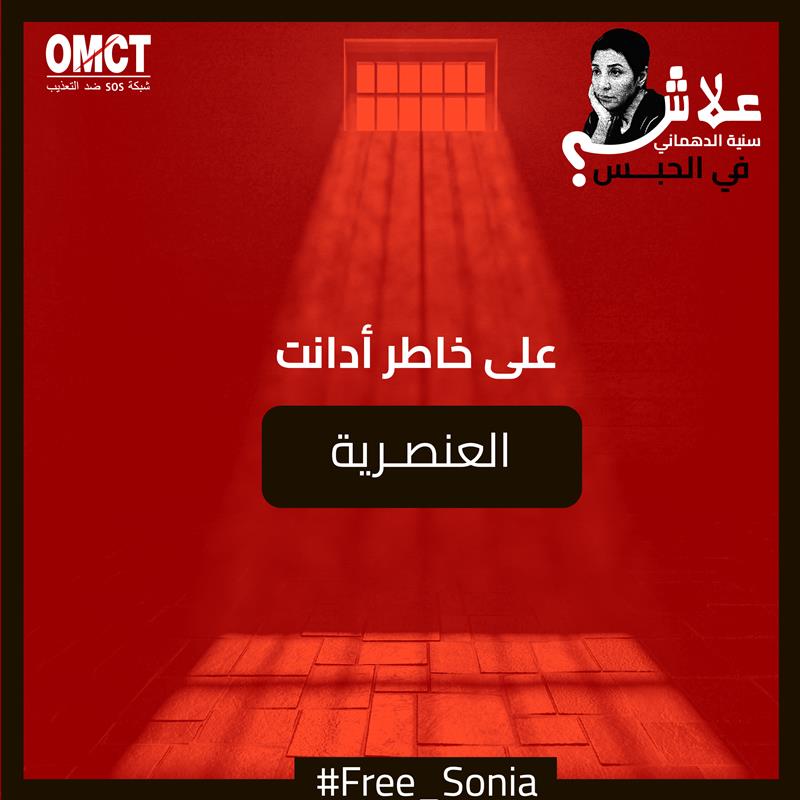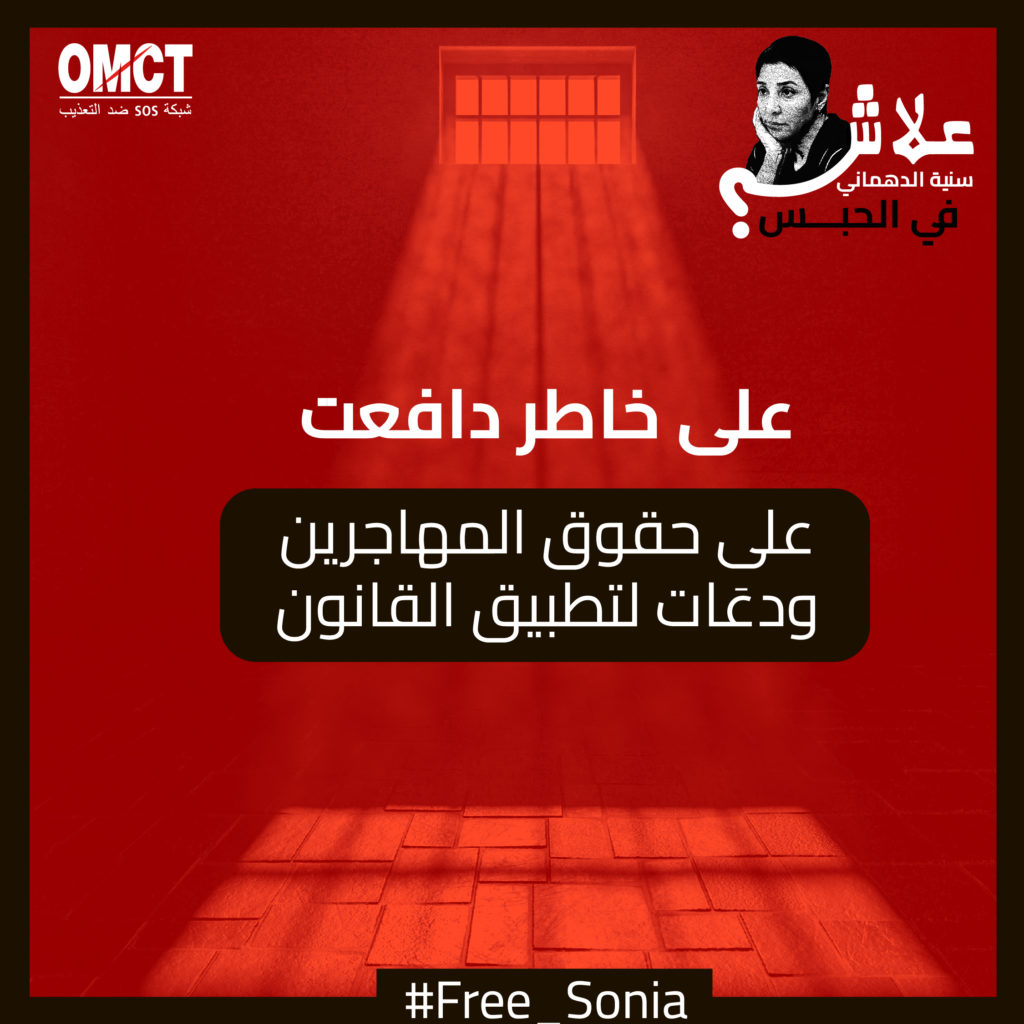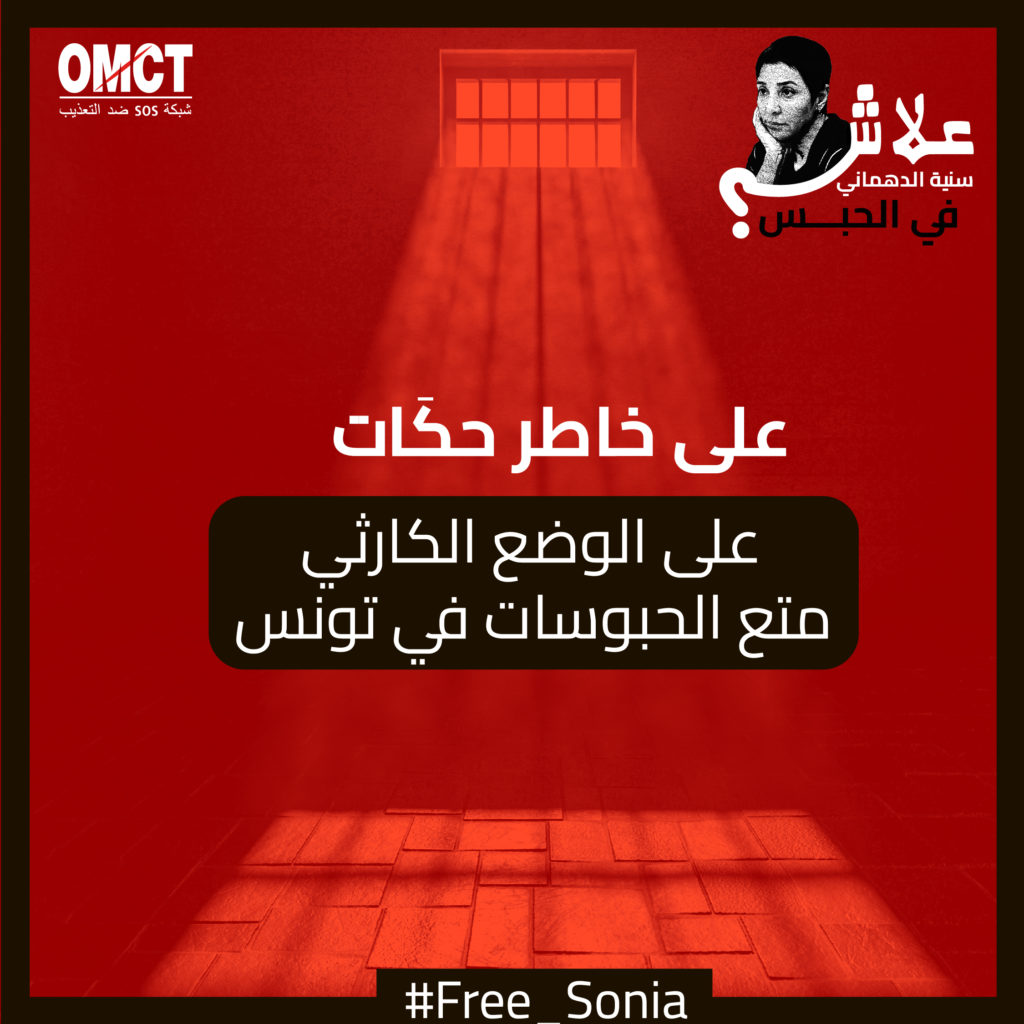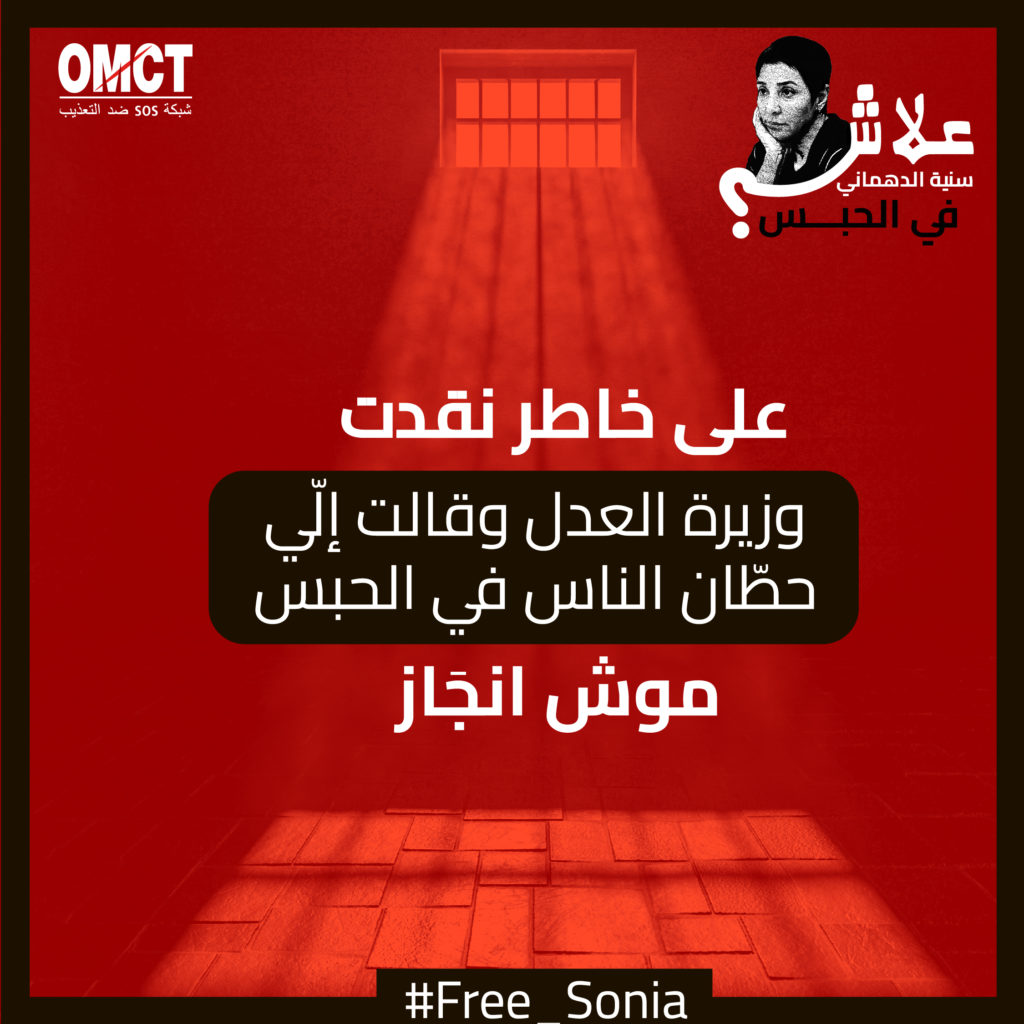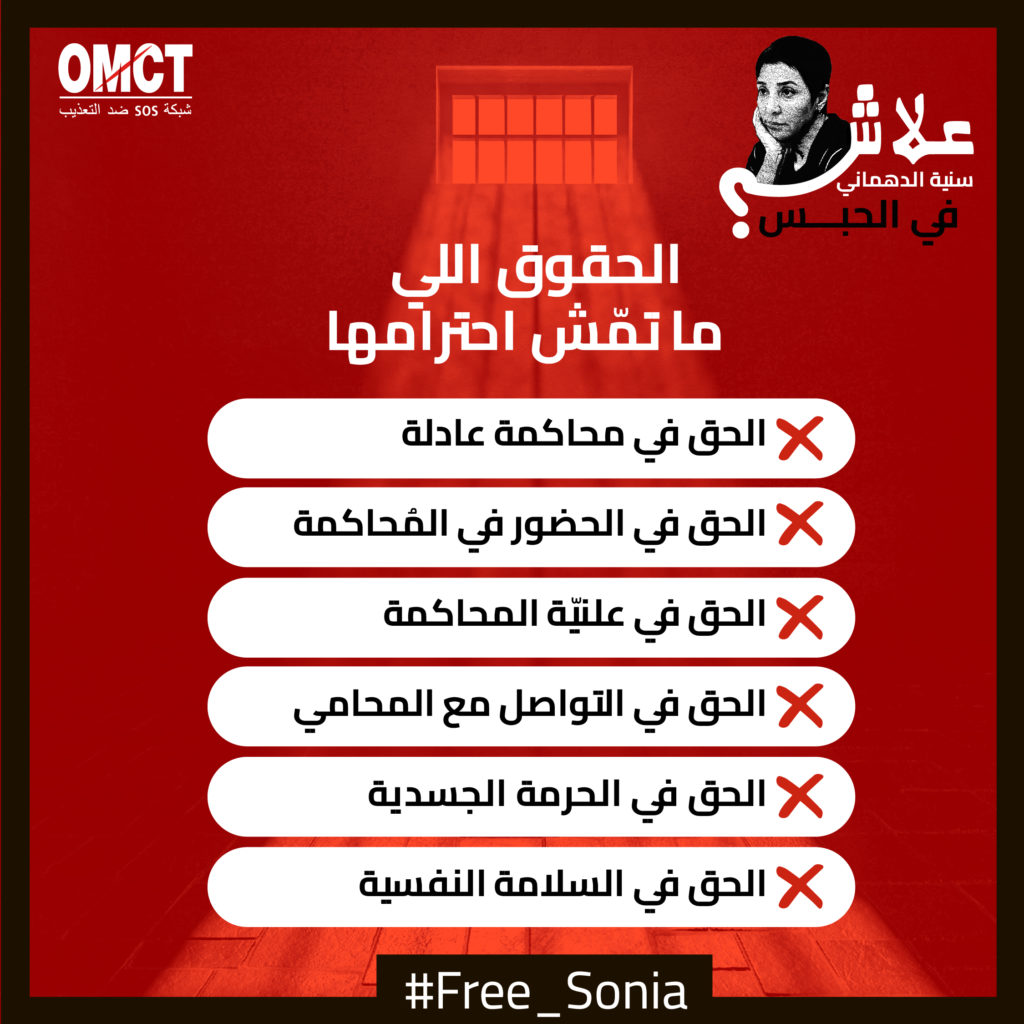I. Contexte de la mission
L’Organisation Mondiale Contre la Torture (OMCT) est une organisation internationale à but non-lucratif. Elle constitue aujourd’hui la principale coalition internationale d’organisations non gouvernementales (ONG) luttant contre la torture, les exécutions sommaires, les disparitions forcées et tout autre traitement cruel, inhumain ou dégradant. Depuis septembre 2011, le bureau de l’OMCT en Tunisie œuvre pour la prévention de la torture et des mauvais traitements en Tunisie à travers :
(1) l’assistance directe pluridisciplinaires aux victimes de torture et de la violence institutionnelle (SANAD), (2) un plaidoyer pour des réformes législatives et institutionnelles, et (3) la sensibilisation du grand public.
SANAD est le programme d’assistance directe de l’OMCT en Tunisie. Depuis sa création en 2013, une équipe professionnelle et engagée accompagne les victimes sur le chemin de la reconstitution. Afin d’améliorer la qualité de ses interventions, SANAD vise à développer son système de collecte de données existant par un système de collecte et d’analyse des données statistiques robuste nécessaire au suivi des bénéficiaires et des activités d’assistance juridique, sociale, psychologique et médicale, permettant ainsi de mieux suivre l’impact des programmes et de guider la prise de décision.
Cela nécessite l’intervention d’un/e spécialiste en « data management” ayant une connaissance du case management et des bases de données existantes pour évaluer les besoins actuels, proposer des solutions adaptées et mettre en place une stratégie efficace d’exploitation des données dans le respect des normes de qualité, de sécurité et de confidentialité.
II. Objectifs de la mission
L’objectif principal de cette mission est de renforcer les capacités de l’organisation en matière de collecte et analyse des données statistiques relatives à la prise en charge fournie par SANAD.
III. Responsabilité du consultant (e)
Le/la consultant/e en gestion des données travaillera en étroite collaboration avec l’équipe SANAD et sera chargé d’effectuer les tâches suivantes dans le cadre de cette mission :
- Mener des entretiens avec les membres de l’équipe SANAD impliqués dans la prise en charge, la collecte et l’analyse des données et le reporting afin de :
- identifier les principales lacunes concernant la gestion actuelle des données de prise en charge
- identifier les besoins en matière de collecte et d’analyse des données quantitatives relatives aux différents types de prise en charge au sein du programme SANAD.
- Proposer des solutions techniques et opérationnelles pour améliorer la collecte, la gestion et l’analyse des données statistiques.
Livrable :
Le/a consultant/e rédigera un rapport final synthétisant le diagnostic et les solutions proposées.
IV. Profil recherché
Le/la consultant/e de base de données devra posséder les qualifications et compétences suivantes :
- Diplôme d’ingénieur ou équivalant en statistique, informatique ou mathématiques appliquées ou dans un domaine connexe.
- Expérience significative dans la gestion des données et des systèmes d’information dans le milieu associatif est souhaitable.
- Connaissance des normes de sécurité et la protection des données.
- Capacités d’analyse et de résolution de problèmes complexes.
- Bonne qualités rédactionnelles et pédagogiques en langue française et/ou en anglais.
- Capacité à travailler de manière autonome et en équipe.
V. Lieu d’affectation : Tunis
VI. Durée de la mission
La mission durera 7 jours ouvrables, avec une évaluation continue des progrès.
VII. Candidature
Nous vous invitons à soumettre votre proposition par e-mail à l’adresse nes@omct.org en mettant en copie hl@omct.org avec pour objet « Offre de consultance gestion des données ».
La soumission doit inclure les pièces jointes suivantes au format PDF :
- Curriculum Vitae (CV)
- Offre pour le contrat : détaillant les éléments suivants (maximum 2 pages)
Version française
English version
I. Mission background
The World Organisation Against Torture (OMCT) is an international non-profit organisation. Today, it is the leading international coalition of non-governmental organizations (NGOs) fighting against torture, summary executions, enforced disappearances and other cruel, inhuman or degrading treatment. Since September 2011, OMCT’s office in Tunisia has been working to prevent torture and ill-treatment in Tunisia through: (1) direct multidisciplinary assistance to victims of torture and institutional violence (SANAD), (2) advocacy for legislative and institutional reforms, and (3) raising public awareness.
SANAD is OMCT’s direct assistance program in Tunisia. Since its creation in 2013, a professional and committed team has been accompanying victims on their road to recovery. In order to improve the quality of its interventions, SANAD aims to develop its existing data collection system with a robust statistical data collection and analysis system needed to monitor beneficiaries and legal, social, psychological and medical assistance activities, thus enabling better monitoring of program impact and guiding decision-making.
This requires the intervention of a data management specialist with knowledge of case management and existing databases to assess current needs, propose appropriate solutions and implement an effective data exploitation strategy in compliance with quality, security and confidentiality standards.
II. Mission objectives
The aim of this mission is to strengthen the organization’s capacity to collect and analyze statistical data relating to the multidisciplinary assistance provided by SANAD to its beneficiaries.
III. Consultant’s responsibility
The Data Management Consultant will work closely with the SANAD team and will be responsible for the following tasks as part of this assignment:
- Conduct interviews with SANAD team members involved in multidisciplinary assistance, data collection and analysis, and reporting in order to :
- identify the main shortcomings in current management of intake data
- identify needs in terms of collecting and analyzing quantitative data relating to the different types of assistance within the SANAD program.
- Propose technical and operational solutions to improve the collection, management and analysis of statistical data.
Deliverable:
The consultant will draw up a final report summarizing the diagnosis and proposed solutions.
IV. Profile required
The database consultant must have the following qualifications and skills:
- Engineering degree or equivalent in statistics, computer science, applied mathematics or a related field.
- Significant experience in data management and information systems in an associative environment is desirable.
- Knowledge of security standards and data protection.
- Ability to analyze and solve complex problems.
- Good writing and teaching skills in French and/or English.
- Ability to work independently and as part of a team.
V. Place of employment:
Tunis
VI. Mission duration
The mission will last 7 working days, with ongoing progress assessment.
VII. Application
We invite you to submit your proposal by e-mail to nes@omct.org, copying hl@omct.org with the subject line « Data management consultancy offer ».
The submission must include the following attachments in PDF format:
- Curriculum Vitae (CV)
- Offer for the contract: detailing the following elements (maximum 2 pages)
